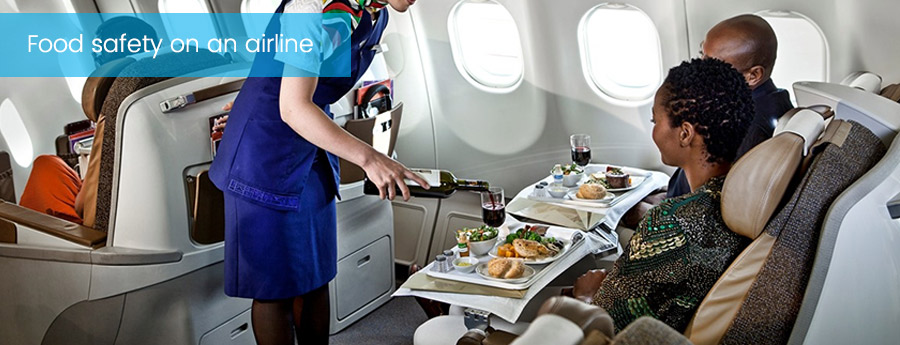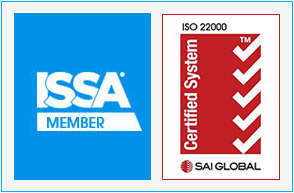When food safety or food quality is compromised on an airline, passengers don’t look to the catering company that supplied the food, they look to the airline that they are flying with.
Not only do incidents seriously damage the brand of an airline, but the legal ramifications of an incident means that airlines will turn to the airline catering companies who have supplied questionable food and demand that they take at least some responsibility.
One well known example of a food contamination crisis, which spurred the implementation of more stringent international food safety standards, is the 1992 case of cholera from contaminated shrimp, which killed one airline passenger and infected at least five others.
For catering companies, the challenge in food safety can be found across various factors.
Apart from preparation issues, such as undercooked food, spoiled food and so on, hygiene and cross-contamination are two key areas that catering companies need to focus on.
Keeping it Clean. Basic Tips to Reduce Contamination
Standard Hygiene
Personal Hygiene: All staff should receive training that prevents food contamination hazards that arise from coughing, sneezing and not washing hands and forearms regularly.
Utensils: Separate utensils should always be used to prepare different foods and these need to be cleaned using high heat to kill contaminants.
Waste Control: Garbage should be stored and sealed in the appropriate location to aide pest control and avoid cross-contamination.
Clothing: Dirty uniforms or protective clothing transport bacteria from one area to another. Replacing soiled clothing regularly will help to limit health hazards.
Cross Contamination
The Aircraft Meal Cart: Because the aircraft meal cart is transported in and out of kitchens and aircraft across cities and countries – the chance of both surface and airborne contaminants being present is high. Specialised cleaning and careful handling will prevent the spread of harmful bacteria.
Pests: Flies, cockroaches, mice and rats pose a threat to facilities and require effective pest control to prevent cross-contamination.
Food Storage: One of the most common forms of cross-contamination is when raw food comes into contact with cooked food. Raw food should always be covered and stored at an appropriate temperature, away from cooked food.
Keeping it Clean. Professional Hygiene Support
Specialised Commercial Cleaning
A rigorous approach to cleaning and a knowledge of international standards of best practice and food safety regulations such as the World Food Safety Guidelines for Airline Catering is essential to maintaining a microbiologically clean food production facility.
Cleaning tasks are not only limited to standard daily cleaning, but should also involve periodic deep cleaning. From food stores, waste areas and drainage, to cooking, preparation and packaging areas – a deep clean ensures every corner of the facility receives attention.
Critical Contamination Response
Being prepared for a serious contamination issue involves having a food crisis plan in place. Apart from managing communication and handling affected food correctly, it is essential to contain the spread of contaminants efficiently.
Food Safety Training
Staff not only need to be well trained and fully familiar with food safety standards and controls, but need to be encouraged to maintain standards and controls through an efficient, well planned workspace that makes it easy to institute food safety.
The ‘World Food Safety Guidelines for Airline Catering’ is a free publication from the International Food Service Association. These guidelines, as well as local food safety standards and HACCP, should be strictly observed by airline caterers and ongoing training is needed to ensure food preparation staff and cleaning staff remain aligned with these standards.
Be ‘Always Audit Ready’
If you’re looking for a commercial cleaning partner with the knowledge, experience and resources to help you manage your food safety, speak to Ecowize. We provide all the professional hygiene support services mentioned in this article and are able to assist you to maintain food safety and remain audit ready at all times.
The Ecowize Quality Management System (EQMS)
Not only will we assist you to develop, implement and maintain your Food Safety Plan, but we also support your Quality Management Team through our cloud based EQMS platform which provides you with 24/7, real-time access to the entire cleaning program at your facility.
To arrange a consultation with one of our food safety and commercial hygiene experts, ring us on 087 803 022 or send us a message today.
Comments are closed.





